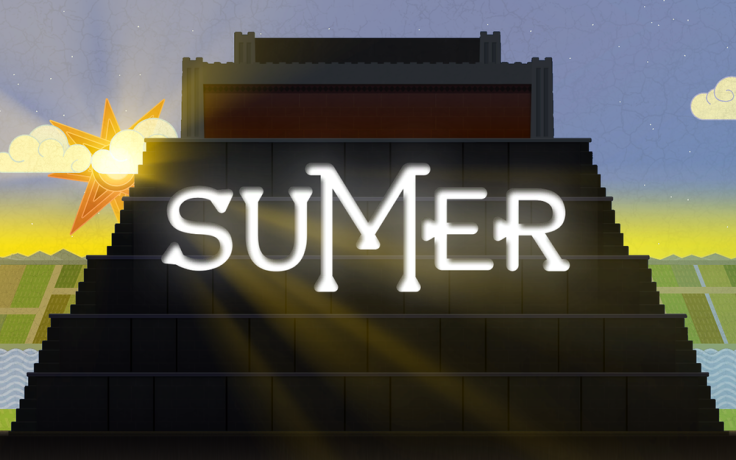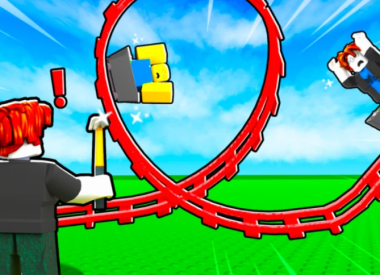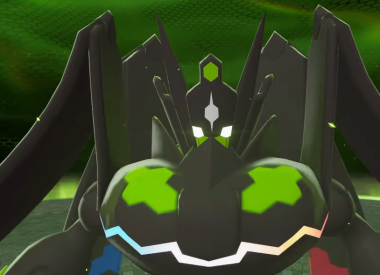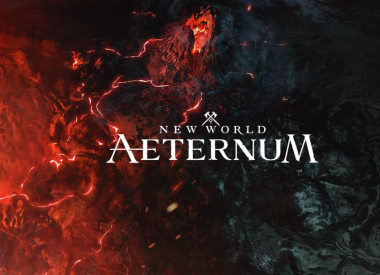PAX Unplugged may have focused entirely on board games, but a few digital games still managed to sneak in under the radar. One of those games is Sumer, a PC and Nintendo Switch game that translates board game ideas into a multiplayer video game.
In Sumer, your goal is to appease the gods by providing the biggest tributes of grain, pottery and other items. To earn these tributes, players race around a ziggurat, placing their two worker minions in different rooms to generate resources. At the start of the game, players can pretty much only sacrifice grain or goats to the gods, which are used in a bidding minigame to buy new rooms.
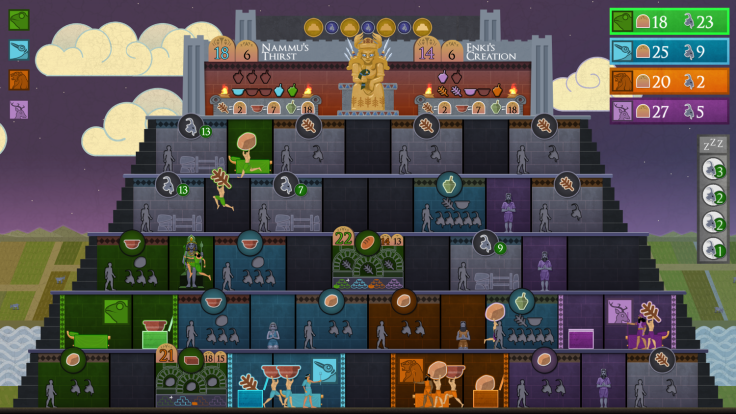
As you would expect, the player who provides the most tribute in a round earns the most points. However, there are multiple rooms to dump items into. It might be to your advantage to focus on getting the top prize of a smaller room and let your opponents fight over trying to claim the top prize of the bigger rooms.
At the end of each round, players enter into a bidding minigame to earn more rooms to put in the ziggurat, which generate additional items to use as tribute. This bidding minigame is one of the smartest ideas in Sumer. Players move a marker back and forth on a screen. The further to the right the marker is, the higher your bid is for a given item. This means you can try to play mind games with opponents by teasing a huge bid, only to drop it down much lower at the last second, or by jumping around so much you confuse the other players.
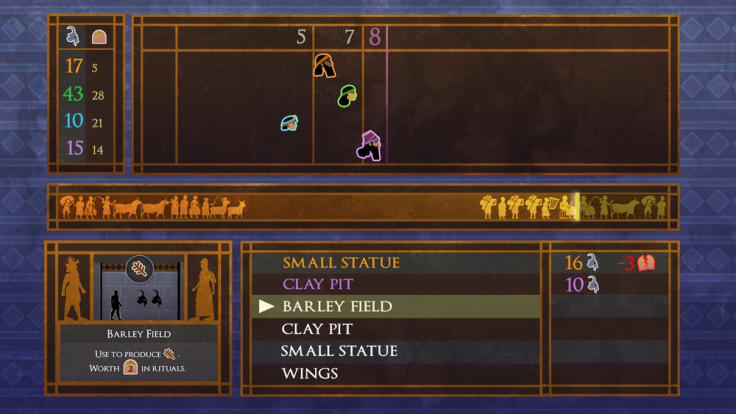
Play continues until the final round, then scores are tallied based on how much you’ve given to the gods, how many goats you’ve accumulated and a few other goals. Because our group didn’t want to hog the game for too long, we played a shortened version of Sumer, which lasted around 15-20 minutes. A full game should end up taking around 30-45 minutes.
The biggest takeaway I had from playing Sumer was how much it felt like a board game. The core gameplay is straight out of a worker placement game, but with some added speed and dexterity elements thanks to everyone racing to assign workers. It’s also nice that there aren’t any rules to remember, scoring to keep track of or small pieces to clean up. Also, like Catan VR, the plan is to implement an online multiplayer, allowing you to play with friends from around the world.
Sumer is available right now on Steam via Early Access. A Nintendo Switch version is in the works (and is actually what I demoed at PAX Unplugged.) The Switch version is planned to release in the next few months, after the PC version has fully launched.
So what do you think? Are you interested in playing Sumer? Have you played any other video games that were inspired by board game ideas and mechanics? Let us know your thoughts in the comments section below.

